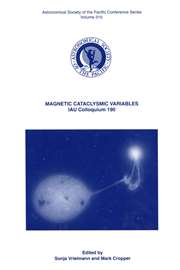No CrossRef data available.
Article contents
Textbooks for Developing Countries
Published online by Cambridge University Press: 12 April 2016
Extract
I would like to address the issue of textbooks from a developing country’s point of view.
Firstly, I believe that in the developing countries a textbook should be written in the native language if it is to reach the very people whose awareness of astronomy needs to be raised. And when we talk about books in the vernacular, the problem is one of dearth: a dearth of writers and a dearth of resources.
The lack of writers comes about simply because in the developing nations there are inevitably very few astronomers and of these only one or two will be inclined to write books. If there exist writers, they are faced with several choices and problems. There are three types of books which can be written: a university text, a school text, and I shall include a book for the public. Each type of book targets a different kind of audience, so the writer must be attuned to the needs of the nation to know what the priority should be. If, for example, astronomy is about to be introduced into a school curriculum, then a school textbook should take the highest priority because it tackles astronomy education at the grass-roots level. Naturally, the final choice will depend on other factors as well, including promotion, fame, and pecuniary considerations.
- Type
- 6. Textbooks
- Information
- International Astronomical Union Colloquium , Volume 105: The Teaching of Astronomy , 1990 , pp. 200 - 201
- Copyright
- Copyright © Cambridge University Press 1990


